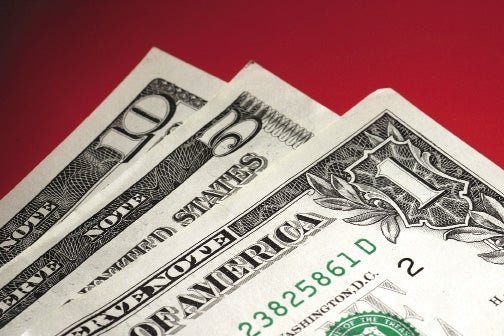Mass House votes for $10.50 hourly minimum wage

Legislation raising the Massachusetts minimum wage from $8 to $10.50 by July 1, 2016 cleared the House on a 123-24 vote Wednesday night, putting both branches on record in favor of a major increase in pay rates for low-income workers.
“I’m sure that the Senate was quite curious to see what we’re doing today, and they’re going to review the bill,” said Rep. Tom Conroy, a Wayland Democrat who shepherded the legislation to passage. “No one should be working full time and living in poverty, and that happens too often here in Massachusetts and this bill goes a long way towards addressing that.”
Though Republicans raised strong objections to some aspects of the bill and tried to change it, six members of the minority party joined their Democratic colleagues in voting for the bill: Viriato deMacedo, Angelo D’Emilia, Paul Frost, Randy Hunt, Shaunna O’Connell and David Vieira. Rep. Colleen Garry was the only Democrat to vote against the legislation.
The bill also provides protections for domestic workers, who Conroy said are “too often” taken advantage of, reconfigures the unemployment insurance taxes business pay to create savings for employers, and will build up the wages of the lowest-paid workers.
“With this vote to increase the minimum wage and to reform our unemployment insurance system, the House has strengthened two important aspects of our state’s social and economic fabric. By pairing an increase in minimum wage with UI reform we will improve conditions for working families and provide a vehicle for economic growth,” Speaker Robert DeLeo said in a statement after the vote.
“At its core a minimum wage bill is about fairness,” Conroy said on the House floor, where he said that if minimum wage kept pace with increases in CEO pay it would be $62.36 per hour and said that since 1989 the highest paid residents have seen incomes rise 17 percent, while the middle class saw incomes drop 2 percent and low-income workers experienced a 9 percent drop.
“There is ample evidence that raising the minimum wage is actually good for our economy,” Conroy said, noting minimum-wage earners spend their paychecks on essentials.
Left on the cutting room floor were two proposals backed by more liberal House members to give a greater increase in hourly wages to restaurant wait staff and other tipped employees and to link future increases in the minimum wage to cost of living.
The Senate bill, which calls for an $11 hourly minimum, raises the tipped employees minimum hourly wage from its current level of $2.63 to $5.50 while the House bill raises it to $3.75. Rep. Tricia Farley-Bouvier, a Pittsfield Democrat, withdrew her amendment that would bring tipped employee wages closer in line to the Senate. Rep. Russell Holmes, a Boston Democrat, dropped his amendment that would have indexed minimum wage to inflation, which the Senate had included in its version of the bill.
The final bill will likely eventually be reconciled during the conference committee process, though because of a procedural dispute, the House and Senate are on different tracks with different bills containing the minimum wage legislation.
Saying the minimum wage increase would add $500 million in business costs, House Minority Leader Brad Jones voiced bewilderment at House leadership’s move to send to study an increase in the earned income tax credit, which provides state tax breaks to low-income workers.
“But apparently when it’s on the government’s dime, if you will, when we’ve taken it from the public, it’s not a good thing,” said Jones. He said, “I’m confused.”
Conroy said an earlier version of the bill that he had planned to release from the Labor and Workforce Development Committee where he is House chairman, had included a “modest” increase in the state’s earned income tax credit, and said it has “merit” and is worth studying.
Some business groups have said the savings that would be realized by the UI reforms pale in comparison to the cost of spending more per hour on minimum-wage employees.
A Republican effort to raise the minimum wage to $9.50, a dollar less than what the bill laid out, went down on a 27 to 150 vote without debate.
(Image credit: freedigitalphotos.net)









0 Comments